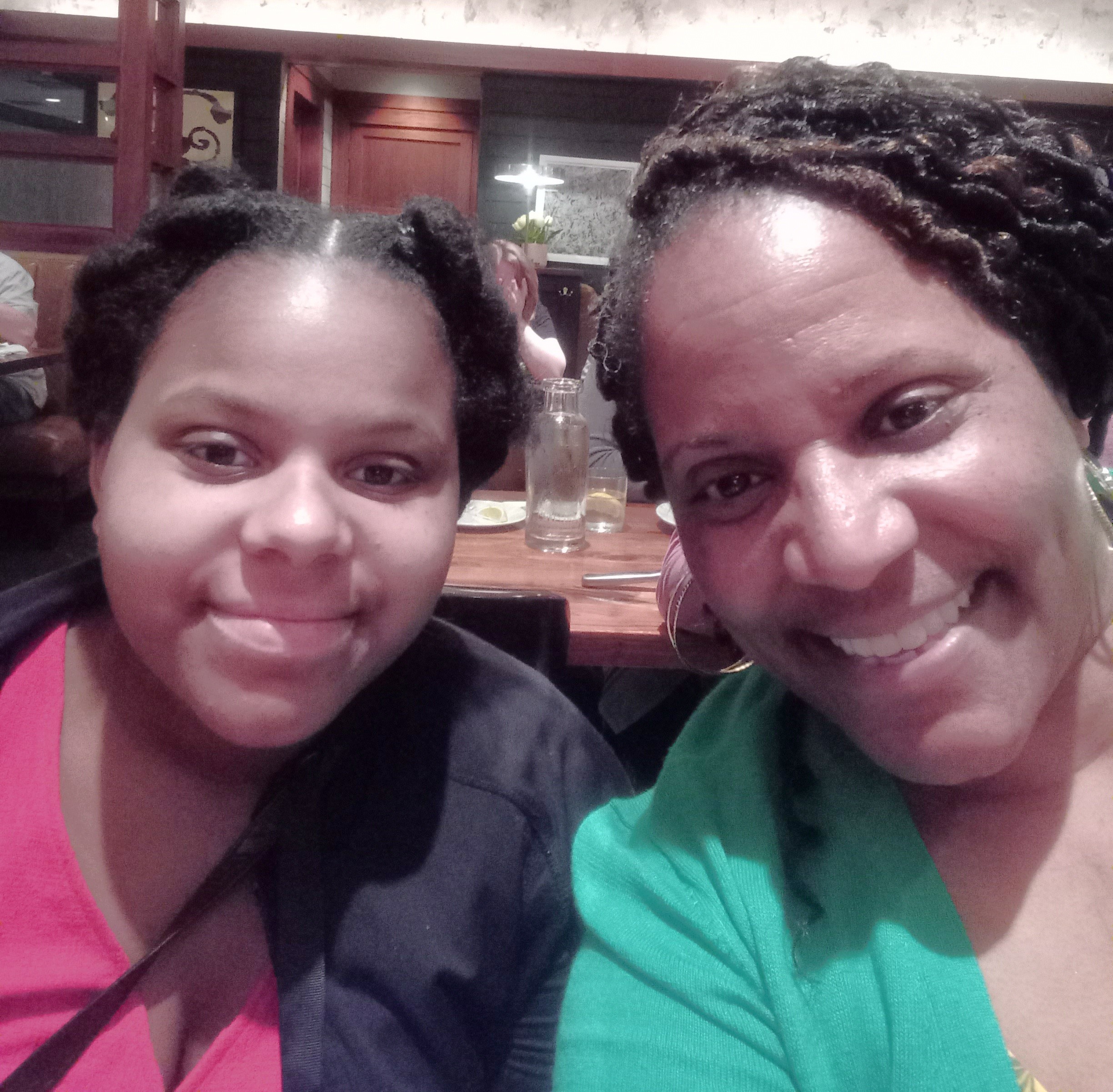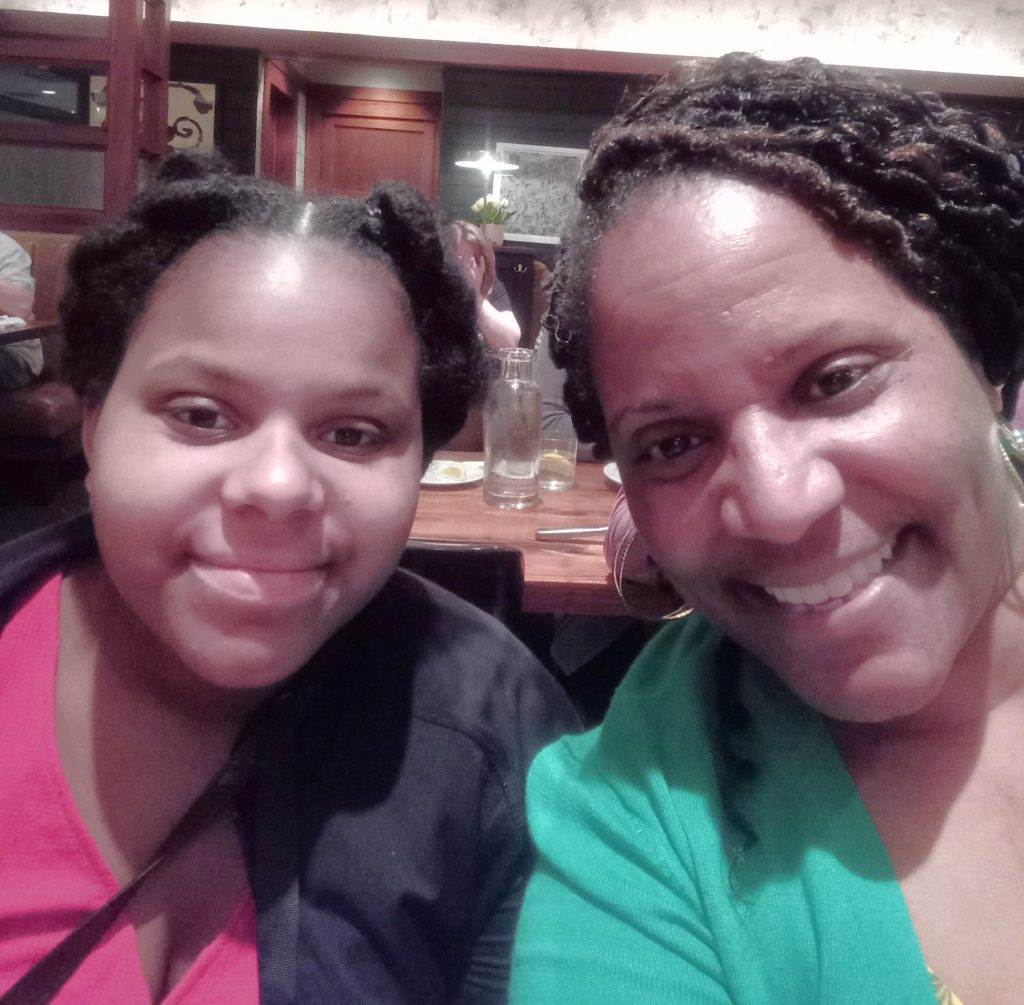7/10/2023
·Enable high contrast reading
Letting Go

 I have been on the ‘parenting a child with a rare disease’ journey for 12 years and I have a confession to make: I thought I had it all figured out. Truthfully, for a while I did. Then my daughter became a teenager.
I have been on the ‘parenting a child with a rare disease’ journey for 12 years and I have a confession to make: I thought I had it all figured out. Truthfully, for a while I did. Then my daughter became a teenager.
After living this rare disease for over a decade I felt like a Vet in the Game. My job was always to be her case manager – to schedule appointments, refill medications, and intervene for her in countless other ways. I did so ungrudgingly because she already has so much to deal with daily. Being diagnosed with Mixed Connective Tissue disease meant days of fatigue, pain, and numerous other issues, so why wouldn’t I want to help in any way I could?
I had it handled. I created a system. I had it all under control. Until I didn’t. In what felt like overnight the things that I did and the interventions that worked so well didn’t work at all anymore. All of a sudden, she had opinions and desires and she was questioning EVERYTHING. ‘Do I really have to get monthly antibody infusions? What’s the worst that can happen if I don’t? It’s ok if I miss just one day of my meds. Mom, it’s not that big of a deal! You’re being dramatic’. Every time she would make these statements, awful memories would flash across my mind. Memories of hospital stays; days, weeks, and months spent homebound too sick to go anywhere. The cries of intense pain. She doesn’t remember any of this but for me, it feels like yesterday.
I get it. As a rare mom, I was told this would happen and as a child and adolescent psychotherapist I know that developmentally this is exactly where she is supposed to be. She is figuring out her way in the world outside of her family – outside of me, which is a good thing. But if I am totally honest, on the best of days this new-found questioning and independence irritates me; on the worst of days, it frightens me; and it is a nuisance on the days in-between.
At a recent family dinner, this became crystal clear. When it was time for dessert my daughter requested key lime pie, one of her favorites. You see we had been to this restaurant in the past and she ate this dessert without issue. On this day, however, the waitress informed us that the crust contained almond extract, and my daughter, on top of everything else, also has a severe nut allergy; so severe that any exposure to nuts can cause anaphylaxis, a life-threatening allergic reaction. I sat quietly and watched as the waitress spoke to her, certain that when given this information she would choose a different dessert. To my shock and surprise, she decided that since she ate it in the past that she would certainly be fine now. We all calmly explained to her that perhaps the recipe was changed and that it didn’t make sense to take such chances. This didn’t faze her and she was fine to just ‘risk it’. The waitress and I locked eyes while in my mind I quickly ran through all the options – the location of her EpiPen, the distance in minutes to the nearest emergency room, etc. Ultimately, I opted to step in and pull the Mom Card. There would be no key lime pie today. At least not THIS key lime pie.
The key lime pie incident started me on a spiral. What if I wasn’t with her? Would she know what to do? What’s going to happen when she goes to college? Will she take her medical condition(s) seriously? How did I miss this? What can I do to course-correct in the 15 months that I have left before she leaves? Should she even go away? Can I legally keep her at home for the rest of her life? It was pretty bad…
When I finally got my wits about me, I leaned into my clinical training and lived experience with my daughter’s older brother. I took a deep breath and reminded myself that though she has some serious medical challenges I can and should still utilize the same strategies that any parent of teens should use. I reminded myself that this experience was a teachable moment for both her and me. There is still work to be done but thankfully there is time in which to do it. I reminded myself of what I already knew to be true:
- She has a strong foundation
- As a parent of a teenager, I must begin to make the shift from being directive to being an advisor
- She is a critical thinker which is a valuable skill (even if it drives me crazy right now)
- I can help set her up for success by asking open-ended questions that can help translate her strong critical thinking skills to making health-related decisions
- I can give her the information needed so that she can make informed decisions about her health
- Adolescence is a challenging time. Empathy and understanding can go far.
And if all else fails, have an awesome recipe for nut-free key lime pie in my arsenal.
Ronda Thorington is a Licensed Professional Counselor with over 20 years of experience providing mental health treatment to children, families, and adults in various roles and settings. She began her career at Family and Children Services of Central Maryland where she provided case management services to families impacted by HIV/AIDS. After returning to her home state
of Connecticut she spent several years working as a clinical therapist at the Children’s Center of Hamden and then expanded her role to include that of clinical director of the facility’s crisis stabilization program. She currently runs a private practice specializing in the treatment of children and families.Ronda’s journey with serious illness began in 2012 when one of her three children was diagnosed with Mixed Connective Tissue Disease at the age of four. She now uses her clinical knowledge and expertise to coach families impacted by life-changing medical diagnoses. She shares tools and strategies developed out of her own experience to empower families in self-advocacy, reducing overwhelm and living lives that are not defined by a diagnosis.





